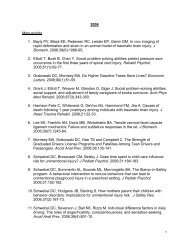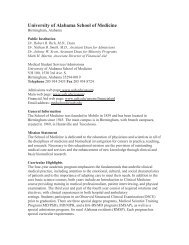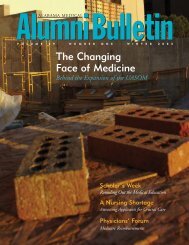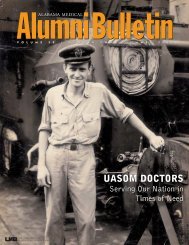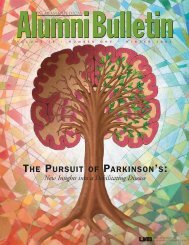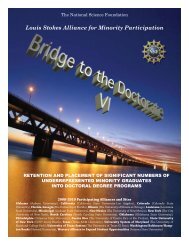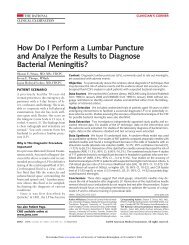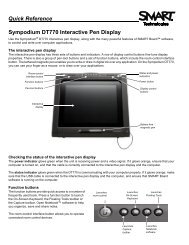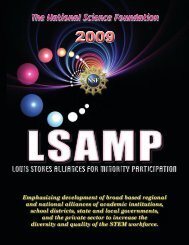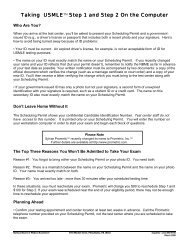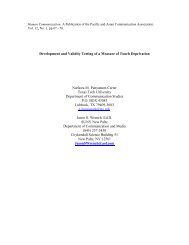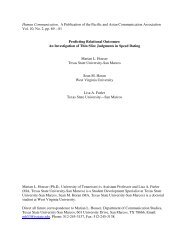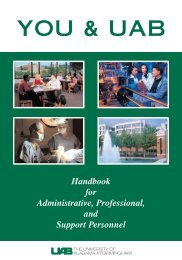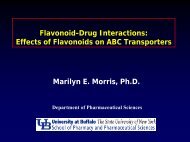Graduate Student Personal Development Plan
Graduate Student Personal Development Plan
Graduate Student Personal Development Plan
Create successful ePaper yourself
Turn your PDF publications into a flip-book with our unique Google optimized e-Paper software.
Does the student understand laboratory problems, procedures, and equipment?<br />
Does the student perform laboratory skills with a reasonable level of proficiency?<br />
Does the student design experiments with adequate controls?<br />
Does the student plan a series of experiments logically?<br />
Does the student keep adequate laboratory records?<br />
Does the student exhibit the ability to evaluate experimental results?<br />
Does the student exhibit receptiveness to suggestions and critical comments?<br />
Does the student exhibit the capacity for self-expression and communication?<br />
Does the student exhibit the ability to get along with co-workers?<br />
• Ph.D. advisory committee meetings: Within the first six months of the date that the<br />
student enters the laboratory, it is advisable to hold a preliminary advisory committee<br />
meeting. Many graduate programs do not require this, but it will often be extremely<br />
beneficial to the student in terms of helping them begin to focus on their dissertation<br />
project. Ideally, the mentor should encourage the student to hold biannual dissertation<br />
advisory committee meetings to review the student’s progress. At these meetings, the<br />
student should prepare a formal update concerning their project and recent progress<br />
during the past six months. The committee should evaluate the student’s progress in<br />
terms of the original specific aims and should provide scientific advice if changes to the<br />
original goals need to be made. The advisory committee should be asked to evaluate the<br />
overall progress of the student with respect to the projected time to graduation for that<br />
student. Specific recommendations should be provided to the student at the conclusion of<br />
the meeting concerning scientific direction and experimental goals for the next six<br />
months.<br />
Part III. Completion of the Ph.D.:<br />
• Evaluation of student achievements: The mentor and student should discuss student<br />
achievements including papers published, abstracts published, presentations at meetings,<br />
research competitions, etc. The mentor should assist the student in the preparation of a<br />
CV early in the program and encourage the student to regularly update their CV.<br />
• Assesment of career goals: The mentor and student should discuss the intermediate and<br />
long-term goals of the student and the mentor should advise the student on the necessary<br />
steps to achieve their intermediate career goal (e.g. postdoctoral fellow position). The<br />
mentor should begin this process early in the student’s training to ensure that sufficient<br />
time is allotted for planning and preparation on the part of the student so that they can<br />
meet requirements in order to be competitive.



